#i have begun to believe that episode changed my brain chemistry
Explore tagged Tumblr posts
Text
me rewatching season 2 episode 5 of iwtv for the one millionth time like this

#me watching people watch the episode so i know they feel how i feel#sorry this? oh this that im watching? oh nothing just some of the greatest bit of television ever made#i cannot think about it too hard because i will start freaking out over how fucking good all the actors are#i have begun to believe that episode changed my brain chemistry#sorry can u tell im hyperfixating today#im sick and delirious this post is crazy boots LMFAO ill probably delete this later#iwtv
3 notes
·
View notes
Note
what the actual fuck i'm so fucking mad you got that message in your inbox, you're like the most loving most positive person here always enjoying your interests in such a nice way like that personally angered me you don't deserve that at all. that was written only to piss you off please don't let them, your love for vice versa and jimmysea is honestly the cutest most endearing thing and it makes me genuinely happy seeing you talk about it so excitedly every day. their episodes were soooo good imho so cute so them! i've missed them a lot and i'll be rewatching FOR SURE! what were your fave 3 moments? if you can choose! fuck that anon and the other ones that might be the same person. love you monica keep loving them as hard as you do <3
ANON YOU'RE MAKING ME TEAR UP THIS IS SO SWEET 😭😭 idk if i deserve all these nice words but please know that i deeply appreciate them and that they mean a lot to me!!!! thank you so so much for this 🥺💜
honestly i LOVED the our skyy episodes like i know im terribly biased, but out of all the ones we got until now i think the plot for vice versa felt the most organic and coherent to the characters and their journey. once again everyone involved in the show put so much care and attention into it, and jimmysea have such a natural easy chemistry to them, they sell the lovesick fools who have been married for five years SO WELL. IDK IF I CAN PICK ONLY 3 FAVORITE MOMENTS BECAUSE THEY WERE ALL SO GOOD BUT LET ME TRY:
1) the beach scene. IRREVOCABLY CHANGED ME MY LIFE MY PERSPECTIVE THE FOUNDATION OF MY PERSONHOOD THE BIOCHEMISTRY OF MY BRAIN AND THE ENTIRE MAKE UP OF MY BEING ON AN INTRINSIC MOLECULAR LEVEL. AGAIN. i haven't even begun to process A QUARTER of the insane amount of parallels they managed to pack in just 3 minutes of screentime and how, by doing that, they were able to show just how far puentalay have come in their journey: from strangers to lovers, from a one sided drunk kiss to a passionate yet tender mutual kiss, from a mouthed 'i like your name' to a mouthed 'i love you', from talay's life ending in the ocean to the ocean being the witness of his love, that same love he once thought was just an annoying distraction in the way to achieve his dreams and that now has become an essential color in the palette of his life..... literally made me experience every single emotion present on the spectrum of human consciousness, im gonna need a 2 weeks long vacation in a controlled environment to decompress and recover from the sheer high romance and the whole entire everything of it all

also not to toot my own horn but i love being correct and never losing:

2) both the birthday conversation and the drawing one. SORRY I KNOW IM CHEATING BUT I JUST CAN'T CHOOSE BETWEEN THESE TWO MOMENTS. WHEN I SAY PUENTALAY INVENTED COMMUNICATION UNDERSTANDING CARE LOVE SUPPORT!!!!!!!! im not mentally stable enough to be coherent about this but like.. one of the reasons i adore puentalay is that since the beginning they have always been willing to try to understand each other. no relationship comes without misunderstandings or conflicts, they're always bound to happen from time to time because we're all different and we all react to things in different ways, but what matters the most is the way you can come together after that to face the issue and make it better. i feel like people often have this idealized vision of love where everything must be perfect and passionate and all-consuming, but i believe love is actively choosing to share your life with someone every day as you help each other navigate through it and enjoy the quiet moments together, and i think these two conversations show that puen and talay have this kind of love, a love that will last forever because whatever happens being together is the most important thing for them


3) puentalay and jigsaw sleeping in the same bed. LITERALLY DON'T KNOW WHAT TO TELL YOU EXCEPT THAT I PERSONALLY DON'T EVEN WANT KIDS BUT SEEING PUEN AND TALAY BEING SO TENDER WITH JIGSAW AND REARRANGING THEIR LIFE TO MAKE SPACE FOR HIM HAD ME LYING IN THE DIRT SOBBING FOR SEVERAL HOURS TO CLIMB DOWN FROM THE SUGAR HIGH THIS SCENE GAVE ME WITH ITS SWEETNESS. it also reminded me a little of the scene in episode 6 when talay admits everything he has missed about puen: talay has always been more rational and reserved with his emotions compared to puen, but it's in quiet moments like these that you can see how deeply his feelings actually run. both puen and talay have so much love to give and one day, when they will be ready, they're gonna have a kid of their own and expand their family, and this knowledge is gonna MAKE ME DIE HAPPY AND IN PEACE

#since i ended up talking about vice versa so much (as always ;;;;;;;) let me send you all the hugs and hearts here in the tags anon!!!!!!#💜💜💜💙💜💙💛❤️💓💗💞💜💚🖤🩷💞💕💗💝💖💚💛💗🩵🩷🤍🧡💘🤎🩶💖💓🧡💝💙💜💜💜💜#thank you so much again for this and i hope you're having a wonderful day!!!!!#vice versa#our skyy 2#m: ask
11 notes
·
View notes
Text
Reappraising Companions
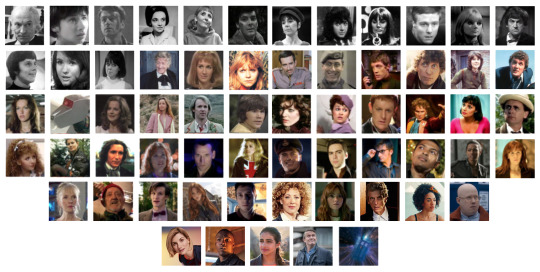
Years after having watched every available episode of Doctor Who, I've had plenty of opportunities to rewatch episodes time and time again. As with most movies and television, I've found revisiting certain stories and eras has caused me to see them in a different light. A story I may have once reviled is suddenly more interesting. I even came to appreciate Peter Davison's performance as the Fifth Doctor for its subtle nature. But what about companions? Are there any companions I didn't care for at first, which I've softened toward over time? That is the question I wish to explore.
Below I've chosen a selection of companions of whom I had initially disliked for various reasons. They span across multiple eras and both the classic and modern versions of the show. With each companion, I have endeavoured to be fair in my reappraisal, but this doesn't mean I've changed my mind. I would also like to state that none of these appraisals are about the actors. My goal is to evaluate companions by the way they were written. The performance will come secondary.
1. Danny Pink

I chose Danny Pink to kick this list off because he is the reason I am writing this article in the first place. Recently, I took to rewatching a selection of Danny Pink episodes, in hopes that I may find something I didn't initially see. When Samuel Anderson was cast as Danny, I was excited. I've always been a big fan of male companions. They offer a different dynamic to the TARDIS that we don't often get to experience. However, in the wrong hands, they can be exhausting. Enter Steven Moffat.
When Steven Moffat took the reins of Doctor Who, he introduced us to Rory Williams. A smart, loyal, and combative male companion, not at all enamoured with the Doctor's mystique. At his worst, Rory was made to compete with the Doctor for Amy's affection. At his best, Rory held the Doctor accountable for the lives he brought aboard the TARDIS. With Danny, I felt like this is what Moffat was trying to do again, but this time, it wasn't as successful.
When we're introduced to Danny, we watch him and Clara fumble over their words like teenagers. It's meant to be cute, but their chemistry is non-existent. It feels like watching an episode of Coupling, in that it's painful and causes me to scan the room for exits. Their adorkable awkwardness is supposed to endear us to their relationship, but it seems forced. This is compounded when the Doctor enters the equation. Forcing Danny to fight for something very few of us in the audience believe in the first place.
Once again we find the male companion being forced to compete with the Doctor for the affection of a woman. But in this instance, instead of holding the Doctor accountable, Danny seems to hold the Doctor in contempt. Coming from his own history of military training and PTSD, Danny projects all of his inner struggles onto the Doctor. Which is unfortunate, as Danny's inner turmoil is his most humanistic trait. This wouldn't be the first time in Moffat's era where the Doctor's nature as a hero was called into play. The problem with Danny's appraisal of the Doctor as a general, barking orders, is that he's wrong. And we as an audience know it.
Not only do we know it, but so does the Doctor. The Doctor even gets a character arc over the identity crisis Danny gives him, wherein he realises Danny is wrong about him. Danny, however, never comes around to the Doctor's side. Even in his final moments on screen, he remains combative with the Doctor, in an exhausting refusal to grow as a character. We're supposed to believe he's come to some sort of character growth of self-acceptance by sacrificing his chance at a new life, for the life of a boy he mistakenly killed. Instead, he carries the same chip on his shoulder to his grave.
Danny is a companion wholly failed by writing. Even at his most heroic, it seems in service of making the Doctor look like a buffoon. His mimicking a soldier while yelling in the Doctor's face is embarrassing for everyone involved. Imagine this is your boyfriend meeting your friends. You would be mortified by his behaviour. Now imagine you have to lie about hanging out with your friends because it might make your boyfriend upset. Now imagine this friend is a very dashing person who constantly puts the lives of others before him. Danny and Clara's courtship is a romance by gaslight.
2. Clara Oswald
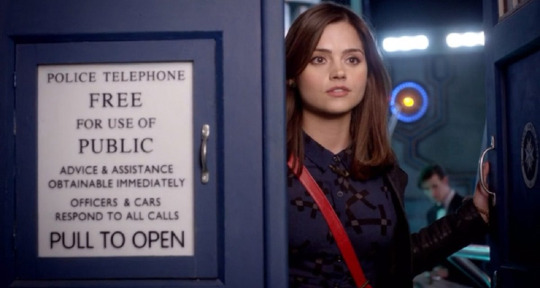
Clara is a whole other can of worms. I could probably dedicate an entire article to her character. I should clarify that my initial dislike for her character is somewhat mired in personal disappointment. By the time Clara was introduced, we had seen a string of modern human companions. We got the occasional tertiary companions from the future, such as Captain Jack or River Song. But we hadn't had a main companion from the past, future, or another planet. So when Jenna Coleman was introduced as Oswin Oswald, Junior Entertainment Manager of the starliner Alaska, I was very excited. Finally, a companion from the future! I was so ready for the Doctor to go on a quest to save Oswin from the cruel fate of becoming a Dalek. What an exciting storyline that was going to be.
And then we see her as governess Clara Oswin Oswald. Ok... Well at least she's still from a different era, right? Oh, she's dead now too? Oh. Much like Moffat's Dracula, all of this great promise was suddenly dashed against the rocks of a contemporary setting. Sigh. I was so excited. What we're given in “The Bells of St. John,” is a new character with less direction than either Oswin or the governess before her. So much that Moffat had taken to literally modulating her brain with an app. Maybe she's really good with computers now? Sorry friends, much like Rose Tyler's gymnastics and Peri Brown's botany, it's never going to come up again.
And this is the biggest issue I have had with Clara Oswald. She spends most of her screen time fluctuating between what character they're writing her as this week. The writers simply didn't know what to do with her while the Doctor tried to figure out why she's so "impossible." One week she's wacky, one week she's stern, another week she's bisexual queer bait. Her characterisation is all over the charts, which sadly, tracks with her entire storyline. She's a woman, fragmented across time, and so is her personality. And don't even get me started on that impossible girl nonsense.
Steven Moffat once said in an interview that one or two people usually guess his big reveal ahead of time, but that no one had guessed Clara's. Perhaps that's because nobody's fan theory was "It's going to be absolute shite." Instead of just being a woman who gets to be her own person, she has to become the most importantest companion. She has to save the Doctor by being planted throughout his timeline, saving him from the Great Intelligence. You know, by sometimes being born as herself, and other times being born as a Time Lord. Sometimes knowing who the Doctor is, other times having no idea whatsoever. Sometimes having a name that is a play on of Oswald, or Oswin, or Clara. And at no times did it make any kind of sense.
The funny thing is, that for me at least, Clara's character doesn't really become interesting until all of that nonsense is behind her. The Clara I find most compelling is the Clara in mourning. Clara post-Danny Pink is a Clara with focus. Her mood swings seem more from a place of destructive behaviour in the wake of great loss. Watching her hold the TARDIS keys hostage above a volcano was some seriously gripping stuff. Aside from the gross digs at her appearance, I found the Twelfth Doctor's relationship with Clara far more endearing than that of the Eleventh Doctor. It may have taken them until her final moments as a companion, but they did get her right, in the end.
3. Melanie Bush
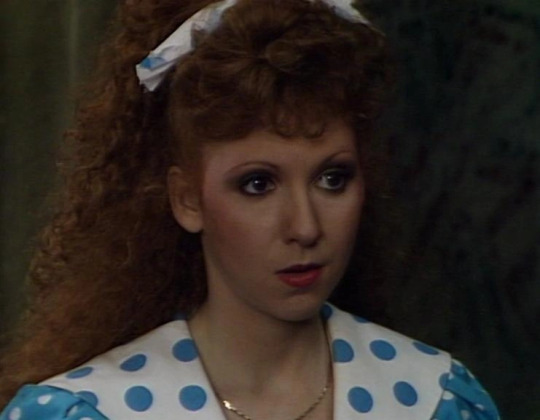
Back in 2015, I had the opportunity to meet Louise Jameson, who played Leela, my all-time favourite Doctor Who companion. I also got to meet Colin Baker, who was all charm. Also in attendance was Bonnie Langford, aka, Doctor Who's Mel. After having gotten autographs from Louise and Colin, and having circled the convention hall a few times, I decided "Sure, why not. Let's meet Bonnie Langford. It's only 10 quid for an autograph." Upon meeting her, she was a very kind woman, and even still, I was racking my brain for something nice to say about Mel. To save face, I lied a very simple lie. I said, "I really liked you in Doctor Who." She smiled, said thank you, and signed my picture. And I walked away, taking my shitty liar mouth with me.
Because the fact is, I didn't like her in Doctor Who. I found every moment she was onscreen excruciating. From her poodle haircuts, to her 80's disaster attire, to her fat-shaming the Sixth Doctor, to her constant screaming at every little thing, she depressed me. I spoke in my review of "Terror of the Vervoids," just how weird it was that we're never actually introduced to her as a character. Instead, Peri is written off, and suddenly, Mel is there, already chummy with the Doctor. You guys know Mel, she's the Doctor's friend, because we told you she was! Instead of getting to know Mel slowly, we're thrown into the deep end, forced to sink or swim within the curls of red hair piled high. Mel doesn't just come out of nowhere, she comes on strong. Fitness expert Mel here to get your fat Doctor Who loving asses into shape. Drink this carrot juice you geek pig!
Not even in Big Finish audios was I finding myself warming up to Mel. When Ace was introduced, they couldn't have pushed Mel out quicker. I found everything about Ace immediately refreshing. Here was a calm and collected badass rebel that I could get behind. It's ironic then; that it was in the Seventh Doctor era that I have begun to find something likeable in Mel. Much like Clara Oswald, a changing of Doctors enriched my appreciation for her character. This appreciation didn't come immediately, mind you, it came about around my third or fourth watch-through of "Paradise Towers."
Perhaps it's the influence of Andrew Cartmel, but with the Seventh Doctor, I have begun to appreciate Mel in the snarkiest manner. Mel is best utilised as a commentary on the Doctor/Companion relationship. She's precocious to a fault, she chews scenery, she screams at the drop of a hat, and she is oftentimes a naive idiot. Yet in "Paradise Towers," it becomes hilarious. Like much of the 80's era of Doctor Who, there is a very "2000 AD," atmosphere to the stories, and I could easily see this as a setting for Judge Dredd to drudge through, busting skulls and filling bodies with bullets. Setting the sunshiny persona of Mel against this backdrop is so brilliant that I can't imagine another companion in this story. Where she would usually grate against me, her sharp contrast from the things happening around her is exactly why I began to soften toward her.
Not even the ire from the Kangs could shake Mel's confidence, which is oddly what makes her cool. Or "ice-hot," as they would say. For the first time, Mel's headstrong sense of self makes her a rebel. She doesn't need to follow a crowd to feel accepted. Sadly, very few writers were able to find this core to Mel, but it was enough for me to be able to look at her in a different light. I could finally look at Mel and say I did like her in Doctor Who. Even if it was just for a moment, and even if it was somewhat at her expense. From a very cynical perspective, Mel can actually be pretty fun.
4. River Song
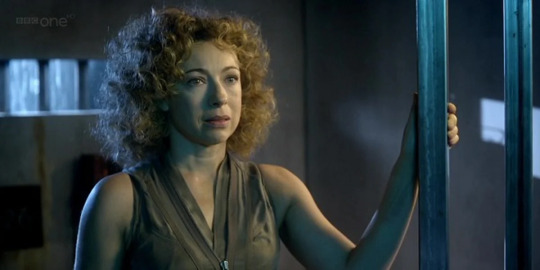
I know a lot of you are probably aghast to see River Song on this list, but I assure you, I have my reasons, and they are not without consideration. I should begin by saying some good things about River. She's smart, she's competent, she's got a healthy grasp on her sexuality, and she's cool. Why then did I not like her very much the first few times I watched her? Well, if you hadn't noticed, the bulk of this list are characters written by Steven Moffat, and once again, it all comes down to writing.
We're first introduced to River in the Tenth Doctor two-parter "Silence in the Library/Forest of the Dead." At first, she's just one of a team of forgettable space scientists on an expedition. However, as she finds out the Doctor is who he is, her entire demeanour changes. Like Mel on steroids, we're given a heaping dose of "Who does this bitch think she is, being all familiar with the Doctor?" Only, instead of it lasting one episode, it's every interaction we have with her character beyond this point. Instead of getting to watch River and the Doctor grow as a couple, we're forced to watch them meet in opposite directions. It is the antithesis of "show, don't tell." Everything about the Doctor and River's relationship is implied. "You're going to love me someday," she promises. Couldn't we just see it play out naturally? Spoilers.
This idea is one that can only really be done on a show like Doctor Who, where things are wibbly-wobbly, timey-wimey. The problem is, this doesn't mean that the idea is worth exploring, or even successful. It's made even worse when the relationship implied is one deeper than friendship. The Doctor is famously chaste, married only to his TARDIS and what lies ahead. Because of this, the idea of a person the Doctor will someday trust enough to share his real name and eventually marry carries with it a sizeable amount of convincing. Such a huge shift in the show's dynamic requires a lot of character development. Sadly none of that is to be seen onscreen. Who is Jim the Fish? Who cares? Steven Moffat's joke of "I'll explain later," became painfully prophetic of his time as showrunner.
I've got no complaints about River being a Time Lord, or even her being the child of Amy and Rory. Those elements are fine, really. It's the way in which she is presented which I find most detrimental to her character. I never did buy into the idea that the Doctor loved her as a wife. Their wedding seemed necessary to save the universe, as opposed to a union made out of love. Any kind of enjoyment I've ever gotten out of River stems mostly out of my love for Alex Kingston's performance. Where the show fails to establish her, she more than makes up for in style and substance. I grew to like River Song, despite the show's failure to ground her properly. River grew on me as she always said she would, but by no effort on the part of the writers. River is cool because River is cool, not because it was inferred that she was.
5. Susan
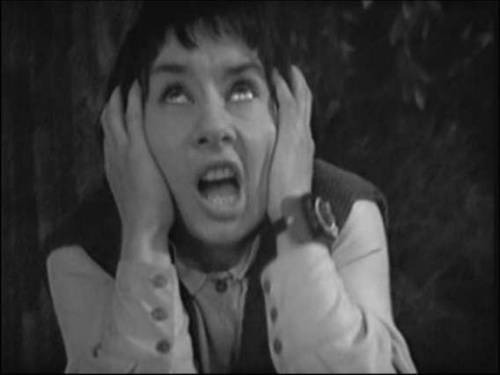
If you’ve followed this blog long enough, you’ll know I’ve already mellowed on Susan. In my reviews of the First Doctor era, I’ve had mostly good things to say about her character. This doesn’t change the fact that I found her utterly irritating at first, and it feels appropriate to talk about it here.
My initial dislike for Susan is a lot like my intial dislike for Clara. A lot of it was wrapped up in my own expectations of the character. Susan is the Doctor’s granddaughter. She is a Time Lord, therefore she should also be brilliant. And we get a lot of that in her first episode. She is mysterious, she’s enigmatic, and she is brilliant. Even her teachers at school found her perplexing. But the show doesn’t continue down that line. In fact, there are times when they make Susan borderline stupid. But how much of this is clouded by my own preconceptions?
For starters, Susan wasn’t a Time Lord. At least, not then. She was just a young girl. She may have been smarter than her fellow students, but this played more into how she was raised. So when the show depicts Susan screaming at every little thing, grabbing her hair dramatically, it smashed apart my mental image of a Time Lord. I couldn’t appreciate that they had her act this way to help sell a bad effect. Oftentimes Susan, like many Doctor Who companions, had her character sacrificed to make the baddies scarier. It was a product of her time, and even still I feel her character suffers for it.
However, one of the things I have discovered through repeat viewings of the First Doctor era is the surprising amount of character development among the TARDIS crew. The Doctor, Ian, Barbara, and Susan all go through deep character development that was sadly often secondary in classic Doctor Who. Before the nature of the Doctor and companions was transient, there was a feeling of a family bond forming. Through this, I have come to find Susan to be a rather deep and sensitive person.
When it comes time to say goodbye to Susan, I can’t say I exactly agreed with the method. The Doctor locking her out and deciding she was mature enough to set out on her own felt hasty. But I would be lying if I didn’t agree that Susan had gone from a little girl to a young woman at that point. When you stop expecting Susan to be the Doctor, and allow her to be a kid, she grows on you instantly.
6. Adric
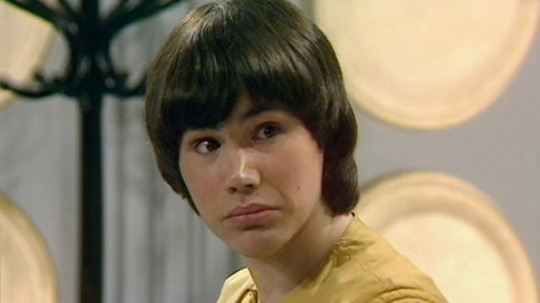
Let's be honest; it's not really original to hate on Adric. It's nothing new to point out what a bad companion he is, but here we are. Something I constantly endeavour to do on this blog is to be fair. One of my biggest complaints about the Doctor Who fandom is the proprietary attitude people take toward the fandom. The "I don't like it; therefore you shouldn't like it," attitude spat with such vitriol is one of the worst parts about being in the Doctor Who fandom. So when you say "Adric is my favourite companion," I'm not devising an argument for how wrong you are, it's fine. Like who you like. This doesn't mean I'm not also thinking in my head "What? Why?" Because I honestly, without malice, do not understand.
The most I ever enjoyed Adric, was in his introductory story "Full Circle." Setting him against a group of fellow Alzarians dilutes his lesser qualities. In fact, when paired with Varsh, he almost seems likeable. Sadly, we have to say goodbye to Varsh, and it's downhill from there. We're forced to watch a contrarian boy genius butt heads with the Doctor while he waddles around in a toddler's outfit while showing off his pound shop sheriffs badge for "mathematical excellence," to anyone who will listen. Adric is so obnoxious that he makes Wesley Crusher seem likeable in contrast.
However, it's not just his contrarian nature that makes me despise Adric, he's also disloyal to the Doctor and his friends. He's so susceptible to bad ideas as long as they a presented logically, that I've dubbed him the Ben Shapiro of the TARDIS. He's a smarmy little shit who believes himself superior to women, and he's really got no justification for his ill-placed self-confidence. Constantly demanding respect while giving very little reason to deserve it, he's like a poster child for incels. To make matters worse, he's oftentimes wrong and easily duped into taking the side of evil, turning him into more of a liability than an asset.
Recently, the idea that the Thirteenth Doctor could save someone from sacrificing themselves by using the TARDIS at the last moment to save them came under fire. "Why didn't the Doctor do this for Adric?" they said, forgetting conveniently when the Twelfth Doctor did the exact same thing in "Into the Dalek." But yes, why indeed? Why would the Doctor ever let a duplicitous, argumentative braggart die by their own stupid need to solve a math problem? My headcanon is that the Doctor got better at flying the TARDIS. The real reason is that people hated his character. The silence over the credits after Adric dies isn't out of respect for the character. The real reason is that the BBC couldn't secure the rights to Kool and the Gang's "Celebrate Good Times," before it aired.
Listen, I am not unsympathetic toward Matthew Waterhouse. He never should have been given such a big role, considering his utter lack of ability at the time. I imagine it was his own insecurity that fuelled his on-set antics. Giving unsolicited advice to veteran actors is cringey, but also the actions of a young and naive boy, in over his head. I know I said I was going to try and treat the performance as secondary, but in this case, it goes hand in hand. He has the stage presence of a fake. Every moment he's onscreen is disingenuous. The fact that he is present at the death of my favourite Doctor, stinking up the scene is genuine pain to me. If he has been made better in Big Finish, I've not yet heard it. As of now, there is nothing I've seen of Adric that has changed my opinion. But I'm glad if he makes you happy.
#Doctor Who#Danny Pink#samuel anderson#clara oswald#jenna coleman#Melanie Bush#Bonnie Langford#River Song#Alex Kingston#Susan#carole ann ford#adric#Matthew Waterhouse#tardis#bbc#companions
11 notes
·
View notes